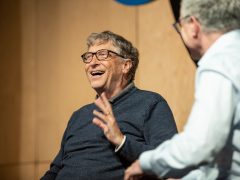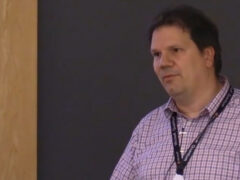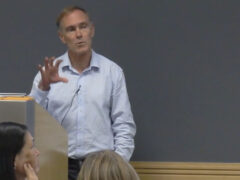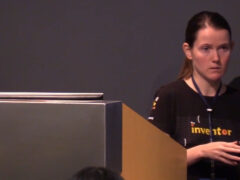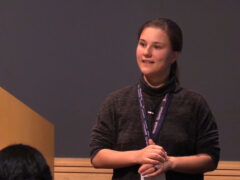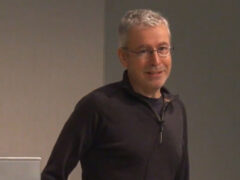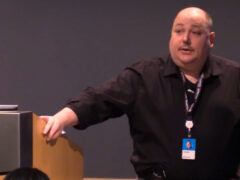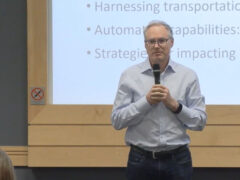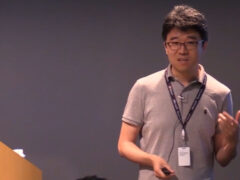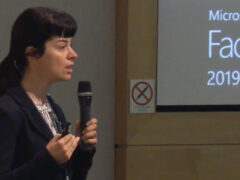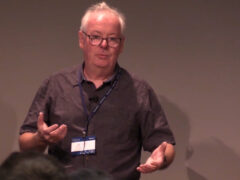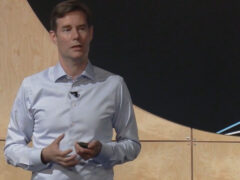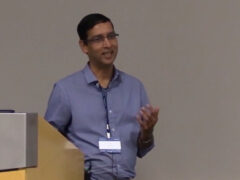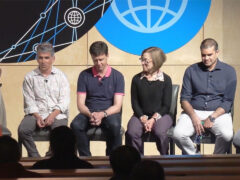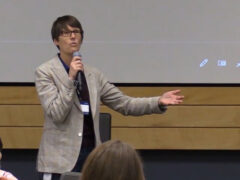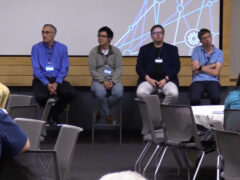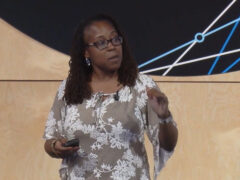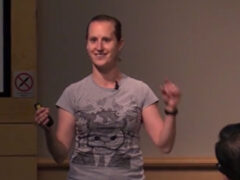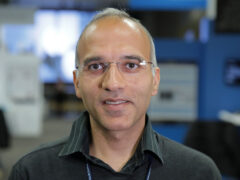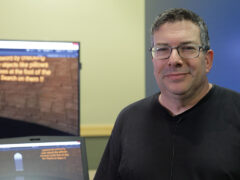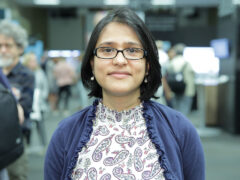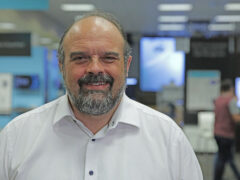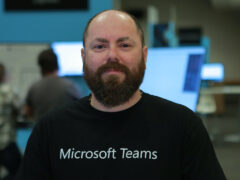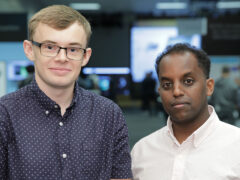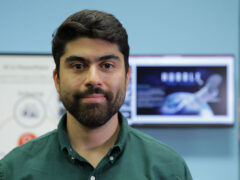The Beast from Below—How Changes in the Hardware Ecosystem will Disrupt Computer Science
- Doug Burger | Microsoft Research
For decades, computer scientists have relied on steadily advancing hardware capabilities. Moore’s Law coupled with Dennard Scaling have improved von Neumann computing by many orders of magnitude. Notably, the underlying changes have been largely invisible to software, with standard instruction sets and compilers hiding the complexity that has produced those enormous gains. However, the easy times are ending; many orders of magnitude gains in performance and efficiency are still achievable, but getting there will break our current notions of instruction sets, compilers, languages, data types, circuits, devices, and applications. Different classes of applications will be enabled, and whole new areas in computer science will emerge. Fortunately, many of the exciting emerging workloads (machine learning, computer vision, speech recognition, and so forth) will be amenable to this new era.
In this keynote from the 2013 Microsoft Research Faculty Summit, Doug Burger, Microsoft Research, discusses the reasons for this shift, and makes some predictions about how it will affect the field of computer science.
-
-
Lori Stone
-
-
系列: Microsoft Research Faculty Summit
-
-
-
Cars, Computing and the Future of Work: Specific topics of mutual interest
- Linda Boyle,
- Ed Doran,
- John Lee
-
-
-
Crowd, Cloud and the Future of Work: Updates from human AI computation
- Pietro Michelucci,
- Lucy Fortson,
- Franco Pestilli
-
-
Cars, Computing and the Future of Work: A UW & MSR Workshop: Welcome and Overview of Projects
- Linda Boyle,
- Ed Doran,
- Eric Horvitz
-
-
Crowd, Cloud and the Future of Work: Welcome and Updates
- Besmira Nushi,
- Ece Kamar,
- Kori Inkpen
-
Empowering People to Achieve More: How Useful a Concept is Productivity?
- Brendan Murphy,
- Yvonne Rogers,
- Steve Whittaker
-
Keynote - The Future of Work And the Power of Data
- Johannes Gehrke
-
Productivity in Software Development
- Neel Sundaresan,
- Margaret-Anne Storey,
- Prem Kumar Devanbu
-
Artificial Emotional Intelligence, Social Systems, and the Future of Collaboration
- Mary Czerwinski,
- Mark Ackerman,
- Gloria Mark
-
Workers of the World, Connect! Tech Innovations and Organizational Change for the Future of Work(ers)
- Mary Gray,
- Jamie Woodcock,
- Louise Hickman
-
Increasing AI Programmer Productivity
- Markus Weimer,
- Sarah Bird,
- Ce Zhang
-
Human-AI Collaboration for Decision-Making
- Besmira Nushi,
- Ayanna Howard,
- Jon Kleinberg
-
Future of Spreadsheeting
- Ben Zorn,
- Felienne Hermans,
- Daniel Barowy
-
Program Synthesis meets Notebooks
- Sumit Gulwani
-
Accessible Virtual Reality
- Eyal Ofek
-
Calendar.help: A Virtual Meeting Scheduling Assistant
- Pamela Bhattacharya
-
Visual Studio IntelliCode
- Mark Wilson-Thomas
-
Microsoft Teams: Collaborate with Any Researcher Anywhere
- Jethro Seghers
-
Project Alava: Programming Webs of Microcontrollers
- James Devine,
- Teddy Seyed
-
AI in PowerPoint
- Kostas Seleskerov

